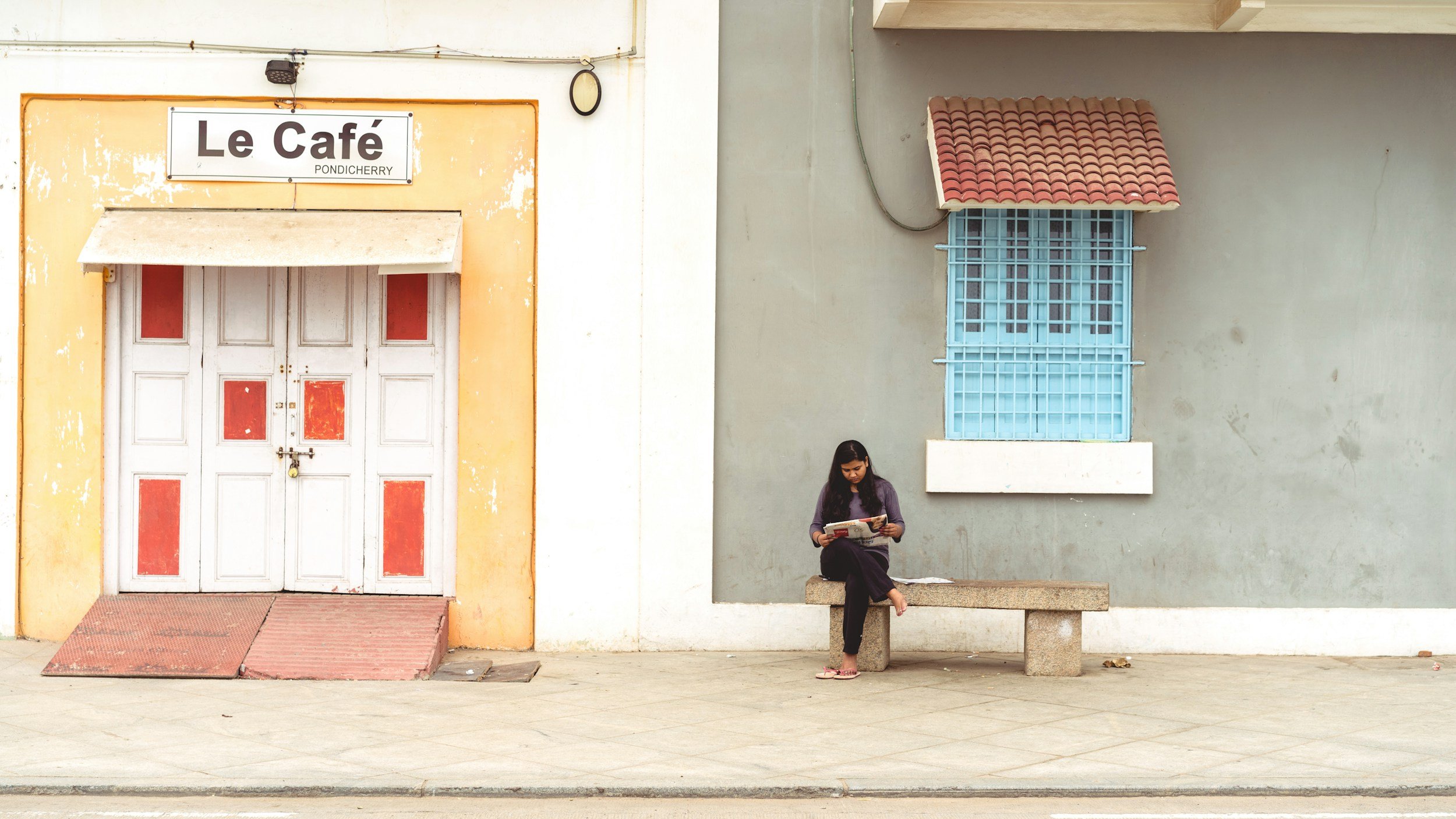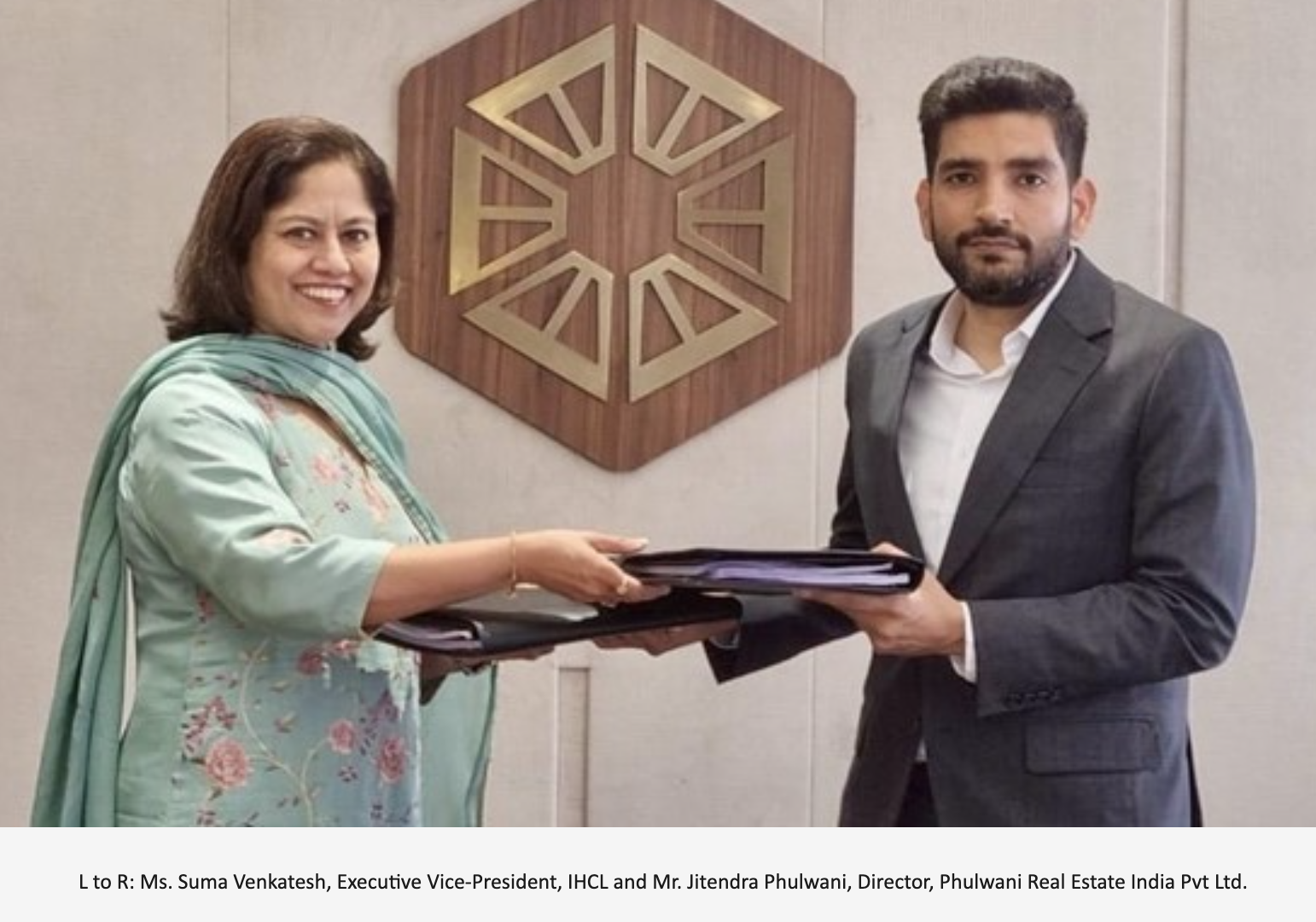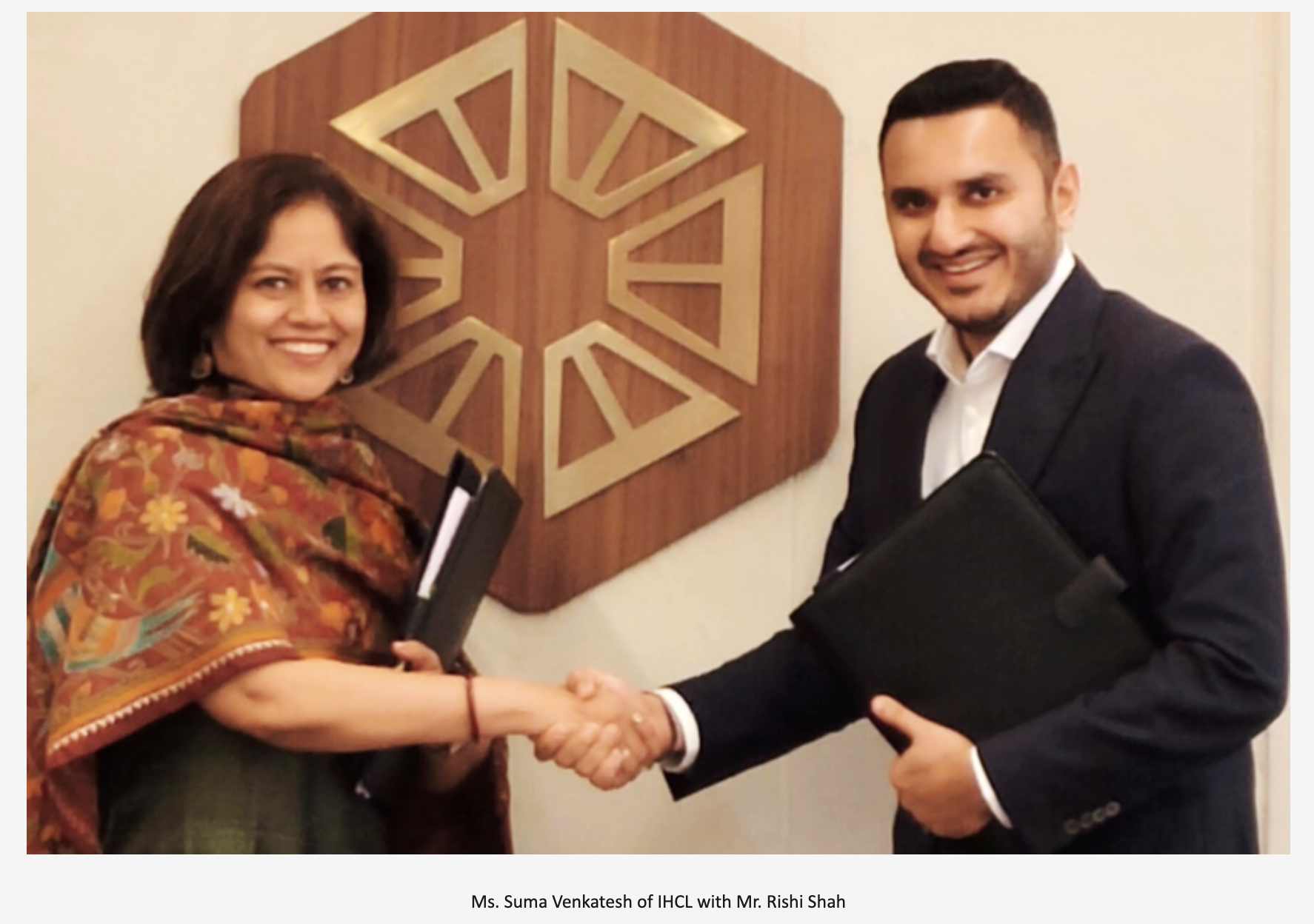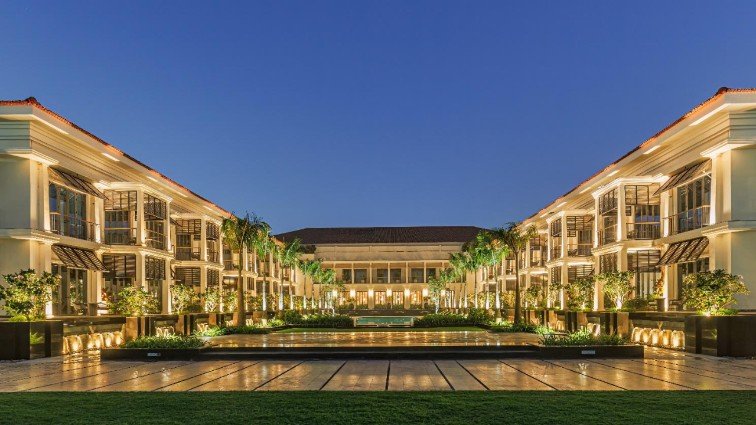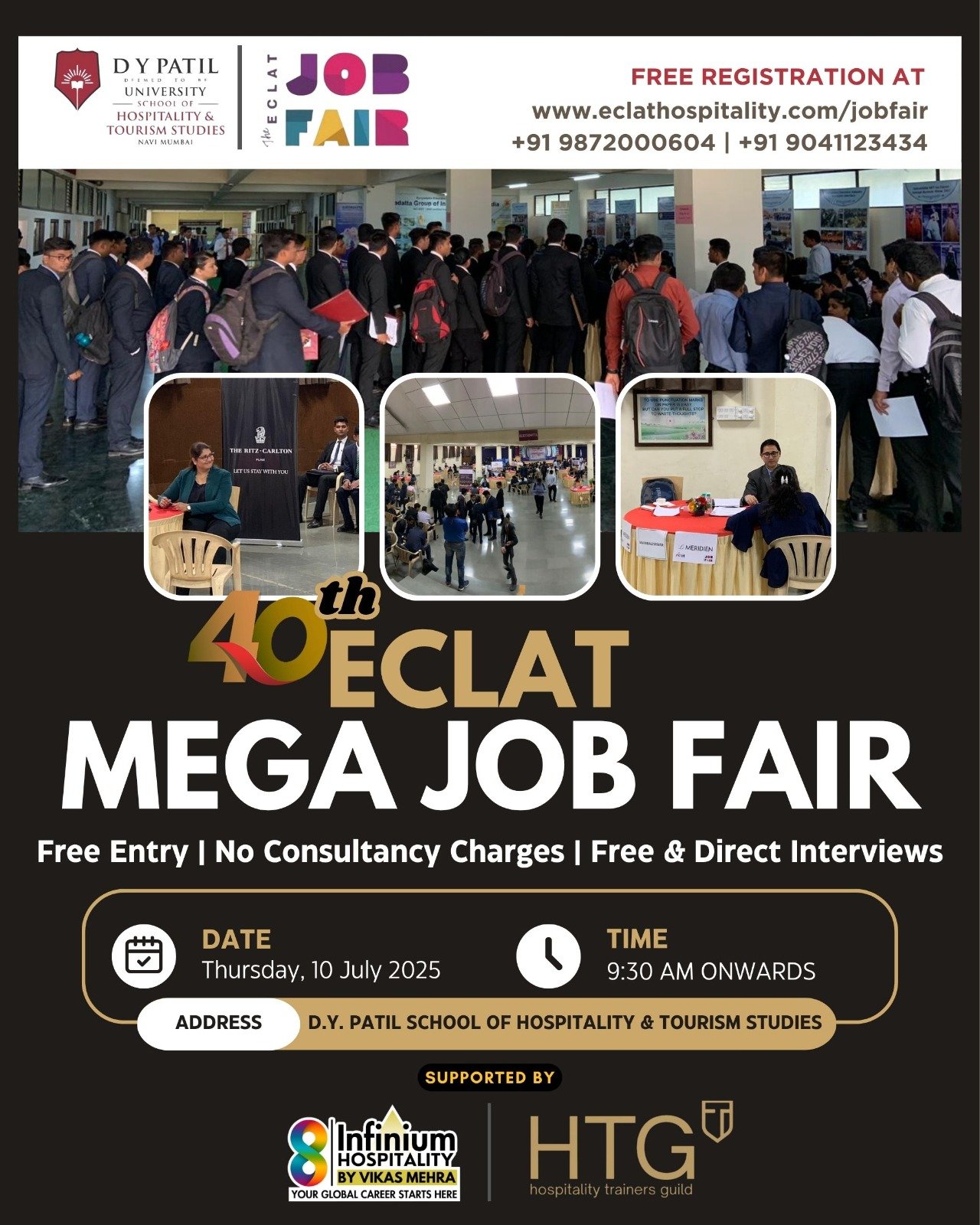SPOTLIGHT | Applied learning the way forward for the hospitality education; The Vedatya experience
/Survival of the fittest; an evolved phrase from Darwin’s evolutionary theory not only holds to the human race but also seems apt to the changing environment of hospitality education. The role of education is not only to make the student employable but it also aims for holistic development of individuals and to prepare them for bigger challenges in life.
Read MoreIHCL reports Q1 revenue from operations at INR 345 cr; losses at INR 301.5 cr
/IHCL reported revenue from operations of INR 344.55 crore for the quarter ended June this year, up from INR 144 crore in the corresponding period of the last fiscal. On a quarter on quarter basis though, it reported a 44 per cent fall in revenues.
It reported losses of INR 301.5 crore down from INR 313 crore in the corresponding period of the previous fiscal year. On a quarter-on-quarter basis, losses were up by 102 per cent.
IHCL said business for the quarter was severely impacted on account of the second wave and the chain witnessed softer revenues due to partial or complete lockdowns in several states of India.
Zomato Indian Food Delivery INR 4538 Crores this quarter.
/Domestic food delivery business reported the highest ever gross order value (GOV) in the quarter under review, increasing by 37 percent to around INR 4,538 crore, compared to INR 3,315 crore in the previous quarter.
Zomato said its operational revenue increased by 22 percent to INR 844 crore in April-June, while net losses rose over 168 percent from the previous quarter to INR 360 crore, as the food delivery platform presented its maiden quarterly earnings as a public company on Tuesday.
While INR 806 crore of operational revenue came from India, revenue of INR 31 crore was logged from the UAE, and the balance from other markets.
Zomato said its adjusted revenue — which is a combination of revenue from operations and customer delivery charges — increased 26 percent to INR 1,160 crore in the June quarter, compared to around Rs 920 crore in the March quarter.
“Revenue growth was largely on the back of growth in our core food delivery business, which continued to grow despite the severe Covid-19 wave starting April,” said cofounder and chief executive Deepinder Goyal in the company’s filings to the Bombay Stock Exchange.
Zomato said the increase in losses is due “largely on account of non-cash Esop (employee stock ownership plan) expenses, which have increased meaningfully in Q1 of FY22 due to significant Esop grants made… pursuant to creation of a new Esop 2021 scheme.’
NEWS | Hyatt Reports Second-Quarter 2021 Results
/Mark S. Hoplamazian, president and chief executive officer of Hyatt Hotels Corporation, said, "Second quarter results improved significantly as travel demand rebounded sharply in certain markets. While leisure travel continues to lead the recovery, we are very encouraged by continued improvements in business transient and group. Accelerating RevPAR growth expanded our operating leverage and as a result we generated positive Adjusted EBITDA and operating cash flow in the quarter."
Second quarter of 2021 highlights are as follows:
Net losses decreased compared to the second quarter of 2020 to a $9 million net loss.
Adjusted EBITDA increased compared to the second quarter of 2020, to $55 million.
Comparable system-wide RevPAR increased to $72.47 in the second quarter of 2021, and decreased 49.8% compared to the second quarter 2019 on a reported basis.
Comparable owned and leased hotels RevPAR increased to $86.66 in the second quarter of 2021 and decreased 53.4% compared to the second quarter 2019 on a reported basis.
Net rooms growth of 7.1%.
As of June 30, 2021, the Company had cash, cash equivalents and short-term investments of $1,737 million.
Mr. Hoplamazian continued, "While the recovery is likely to remain uneven over the coming months, we remain confident in continued momentum in RevPAR growth given positive forward-looking indicators in our business. Furthermore, the strength of our brands continues to yield industry-leading net rooms growth. We opened 100 properties over the last twelve months and maintain a strong pipeline representing over 40% of our existing rooms."
Marriott International Reports Second Quarter 2021 Results
/Second quarter 2021 comparable systemwide constant dollar RevPAR increased 262.6 percent worldwide, 274.6 percent in the U.S. & Canada, and 223.2 percent in international markets, compared to the 2020 second quarter;
Second quarter 2021 comparable systemwide constant dollar RevPAR declined 43.8 percent worldwide, 39.5 percent in the U.S. & Canada, and 55.6 percent in international markets, compared to the 2019 second quarter;
Second quarter reported diluted EPS totaled $1.28, compared to reported diluted loss per share of $0.72 in the year-ago quarter. Second quarter adjusted diluted EPS totaled $0.79, compared to second quarter 2020 adjusted diluted loss per share of $0.57;
Second quarter reported net income totaled $422 million, compared to reported net loss of $234 million in the year-ago quarter. Second quarter adjusted net income totaled $260 million, compared to second quarter 2020 adjusted net loss of $184 million;
Adjusted EBITDA totaled $558 million in the 2021 second quarter, compared to second quarter 2020 adjusted EBITDA of $61 million;
The company added nearly 25,000 rooms globally during the second quarter, including roughly 13,000 rooms in international markets and a total of approximately 5,300 conversion rooms. Gross rooms growth was 6.1 percent for the twelve months ended June 30, 2021;
At quarter end, Marriott’s worldwide development pipeline totaled 2,750 properties and nearly 478,000 rooms, including roughly 19,000 rooms approved, but not yet subject to signed contracts. More than 212,000 rooms in the pipeline were under construction as of the end of the 2021 second quarter.
The Employee Experience
/We loved this from Four Seasons. Enjoy!
If there is anything you do for your employees, do write in to editor@hospemag.me and we would love to feature it.
NEWS | IHCL Initiatives To Bring In 1150 Crore over next 2 - 3 years
/According to recently held Analyst’s meet:
Taj’s exclusive business club, The Chambers, has been relaunched with new features. The firm plans to increase its member count from 2,200 to 4,000. Seven Chambers are operational now and two more are in the pipeline. The company expects it to become a ₹150-crore business.
The firm said the group’s food delivery business Qmin has the potential to reach ₹500 crore in revenue.
The group’s branded homestays, Ama Stays and Trails, has a revenue potential of ₹500 crore.
New initiatives (Qmin, Ama, The Chambers) are expected to contribute ₹450-500 crore or 10% of revenue over the next two-three years from 5% currently.
Mobile hotel startup Cabana secures $10M to accelerate growth
/The latest funding was led by Craft Ventures and Goldcrest Capital with participation from Launch, Castor Ventures, Gaingels, Nordic Eye and other strategic angels and syndicates.
Cabana is a rental platform offering a fleet of vans that have been customized to serve as mobile hotel rooms, equipped with a bed and bedding, a shower, toiletries, Wi-Fi, a water tank and, in some units, kitchens.
The company says its business has surged since its official launch last year in Seattle, with more than 6,700 nights booked.
“Cabana's growth during the pandemic proves the increasing consumer shift away from traditional modes of travel,” says David Sacks, co-founder and general partner of Craft Ventures.
Auro Hotels appoints Tanvir Shaikh as Front Office Manager at Courtyard by Marriott Surat.
/Tanvir brings 9 years of experience in Front Office operations under various hotel brands
Auro Hotels recently appointed Tanvir Shaikh as ‘Front Office Manager’. In his new role, Tanvir will be spearheading Front office operations of Courtyard by Marriott Surat. Tanvir, a driven and result oriented professional, has the ability to maintain excellent guest relationships and ensuring an outstanding front office experience for his guests.
Prior to joining Courtyard by Marriott Surat, Tanvir has worked with brands like Ginger, Aloft, Le Meridien, Radisson Blu.
Vikas Sharma, Area Director and General Manager, Courtyard by Marriott Surat commented, “It is a delight to have Tanvir on board with us. He has proven himself to be a great asset to the team in his previous stint with Courtyard by Marriott Surat and I am sure that he will be exceeding expectations this time too. Tanvir is dynamic, a quick thinker, a fair leader and above all creates memorable experiences for our guests.”
Tanvir was recently recognised by Marriott International– Asia Pacific for his excellent contributions in strengthening Courtyard by Marriott Surat’s Guest service experience and will be given a shout out at the upcoming Digital Guest Experience and GXP Webinar later in the month.
Hailing from Beed, Maharashtra Tanvir is a fitness enthusiast and an expert swimmer.
About AURO Hotels
A successor to GJHM Hotels based in Greenville, SC – Auro Hotels has developed, owned, and operated hotels for 44 years. The company currently owns 36 hotels and operates hotels with over 6500 guestrooms, located in the United States and India, operating under such well-known brands as Marriott, Hilton and Hyatt. Auro Hotels were the first franchise operators of Marriott Hotels in Asia Pacific. For more information, visit the website at www.aurohotels.com
SueChef
/SueChef is your new personal sous-chef. A unique combination of an oven and a freezer, SueChef allows you to store multiple meals to be cooked on demand, from wherever you are. Just ask Alexa, Siri, Google Assistant, or Sue (our AI) to prepare a meal for you, and relax. SueChef will move the meal to the oven and cook on its own.
Read MoreRevPAR declined 46.3 percent worldwide - Marriott International Reports First Quarter 2021 Results
/First quarter 2021 comparable systemwide constant dollar RevPAR declined 46.3 percent worldwide, 46.3 percent in the U.S. & Canada, and 46.1 percent in international markets, compared to the 2020 first quarter;
First quarter 2021 comparable systemwide constant dollar RevPAR declined 59.1 percent worldwide, 57.1 percent in the U.S. & Canada, and 64.1 percent in international markets, compared to the 2019 first quarter;
First quarter reported diluted loss per share totaled $0.03, compared to reported diluted EPS of $0.09 in the year-ago quarter. First quarter adjusted diluted EPS totaled $0.10, compared to first quarter 2020 adjusted diluted EPS of $0.49;
First quarter reported net loss totaled $11 million, compared to reported net income of $31 million in the year-ago quarter. First quarter adjusted net income totaled $34 million, compared to first quarter 2020 adjusted net income of $160 million;
Adjusted EBITDA totaled $296 million in the 2021 first quarter, compared to first quarter 2020 adjusted EBITDA of $442 million;
The company added more than 23,500 rooms globally during the first quarter, including nearly 12,000 rooms in international markets and a total of about 7,300 conversion rooms;
At quarter end, Marriott’s worldwide development pipeline totaled over 2,800 properties and approximately 491,000 rooms, including roughly 18,000 rooms approved, but not yet subject to signed contracts. More than 222,000 rooms in the pipeline were under construction as of the end of the 2021 first quarter;
At the end of the first quarter, the company’s net liquidity totaled approximately $4.7 billion, representing $0.6 billion in available cash balances and $4.1 billion of unused borrowing capacity under its revolving credit facility.
Post-Covid Management Rules For The Hospitality Industry In The Sub Continent– The Way Forward! by Alex Koshy, Vice President, Ummed Hotels India
/Alex Koshy, Vice President, Ummed Hotels India
In light of the Covid Pandemic that has engulfed the world at large, the Hotel industry especially in developing countries, will be seeing visibly pronounced changes that is bound to last for a prolonged period of time. These changes may be quite far-reaching and can range from the way hotel properties are designed to the way it is managed.
The pandemic has forced us to think of novel ways of managing resources and innovative ways of ushering business. These changes are likely to stay and may well be the harbinger of what can be called as the age of the Post-Covid Management principles and processes. We are witnessing a transition which is inclined towards more of outsourcing and asset light options.
Outsourcing and Asset Light options
Outsourcing and asset light are probably the key words or mantras that the future leaders of the Hotel Industry will be trained to look out for. Key operations such as housekeeping has never been considered as an outsourceable option, especially in this part of the world. However, as part of the asset light scheme, there is a high likelihood of witnessing operators negotiating for full packages, whereby, rates will be fixed for a complete service (including manpower, linen, laundry, pest control and gardening). Per room cleaned costs will be agreed upon whereby the hotel doesn’t lose out even at low occupancy. Kitchen, another department which we were shy to outsource will in all likelihood see truly drastic change where every perishable item is delivered and only requires to be put on the plates by the kitchen staff. From the morning bakery to the confit of meat, you will see that every item comes in tins or frozen. Cooking methods will change, as a consequence of which, wastage will reduce and staffing be done differently.
Niche Markets
Another shift may be that hotels will stop being all-rounders and will focus on building their niche markets. A business hotel will be content being just that and not try and be a hotel that ALSO serves Michelin grade food, hosts big fat weddings and has an Ayurveda doctor in the premises! Speciality restaurant within hotels might make way for a multi-gym which is open for public and the break out rooms will probably become office spaces with shared work desks. More emphasis will be given on the square foot used versus the revenue generated model.
Centralisation
Brands which have multiple properties in a certain kilometre radius will have central units which cater to all their hotels. This can be witnessed in engineering, IT, laundry, food production, human resources, sales and marketing and finance. Gone are the days where you have the luxury of having multiple IT resources guiding guests on how to access wi fi or changing printer cartridges.
Engineering departments will become more efficient whereby you will witness a single person managing the show with the support of the central team.
Redefining luxury
Three decades ago, luxury was defined in the quality of wood used and the thread count of your linen, the expensive art forms, flooring and fabric that adorned your surroundings. However, we now see a shift in design where minimalistic has become the new definition of luxury. Going forward, we can expect to see this trend to extend to all departments. The Investors will give more emphasis on building sustainable and energy efficient properties with plenty of technological features, which in turn will increase efficiency. Google home and Alexa will become the most basic feature of any new built property. Self-cleaning tanks, drip irrigation and other cost-effective means will become the standard.
Staff Changes
The concept of hourly wages and reliance on part time staff will increase. The sales and marketing department will shrink with more focus on technology to deliver messages. Digital marketing will largely replace the daily sales calls. Individual monitoring and checklists will replace supervision.
Travel desks and concierge service will be available only at a select few hotels. Dispensers and vending machines will become fashionable be it for bathroom amenities or late-night munching.
Gone will be the days where you find rooms, multiple restaurants, spa, health club, night club, beer garden, whiskey lounge, cigar room, convention centre in one complex. Hotels will identify their USP and focus primarily on that segment.
The Shift
The Pandemic has taught the investors to run their properties in a more sustainable manner without compromising on the profitability. Covid 19 has been an eye opener for brands who have realigned their strategies to become more in sync with the investor’s interests. While guests and vendors have become more wiser (negotiating further and further), the hotel staff has realised that the only way forward is to be multi-skilled and multi-flexible.
The Only constant
As we are often reminded, change is the only constant and as we have proven again and again, we all have it in us to take all the changes in our stride and adapt and evolve as is necessary.
And so, let us hear it for a better tomorrow!
Hilton posts improved Q1 results, cuts losses in half - Net loss in the quarter was $109 million compared to $225 million in Q4 2020
/Hilton has revealed its Q1 2021 results, and while losses are still in the millions, they are drastically less than Q4 2020.
Net loss in the quarter stood at US$109 million, well below the net income of $18 million in Q1 2020, but above the $225 million loss in the final quarter of the pandemic-struck 2020. Hilton also outperformed fellow US hotel group Hyatt, which saw losses amount to $304 million in Q1 2021.
System-wide comparable RevPAR shows a similar story, decreased 38.4 percent YOY, though still up from the 59.2 percent drop seen by the end of December last year. ADR and occupancy rates fell 23 and 11 percent respectively in Q1 2021, clocking in at $105.38 and $43.9. Adjusted EBITDA was $198 million for the first quarter
Looking at the MEA region specifically, it outperformed Europe across the board, with occupancies hitting 42.6 percent compared to 19.3 percent in Europe; ADR hitting $124.56 compared to $81.59; and RevPAR hitting $53.12 compared to $15.74.
New Appointment Announcement at Eastin Easy Vita, First International Hotel, in Vita Sangli District
/Arun Sharma
Satish Mishra
Mr. Kabir Mehra is delighted to announce new appointments at Eastin Easy Vita, namely Mr. Arun Sharma as Food and Beverage Manager and Mr. Satish Mishra as Accounts Manager.
Academically qualified with a degree in Hotel Management Catering Technology & Tourism, Arun Sharma brings along, diverse experience of over 10 years with in-depth knowledge, experience, and training in all aspects of food and beverage operations.
With over 12 years of experience in the Hospitality industry, Satish Mishra started his hospitality career with Sayaji Hotels in 2008
source


